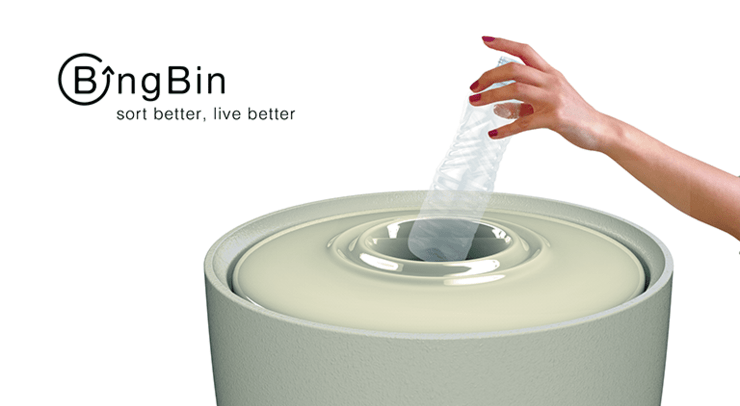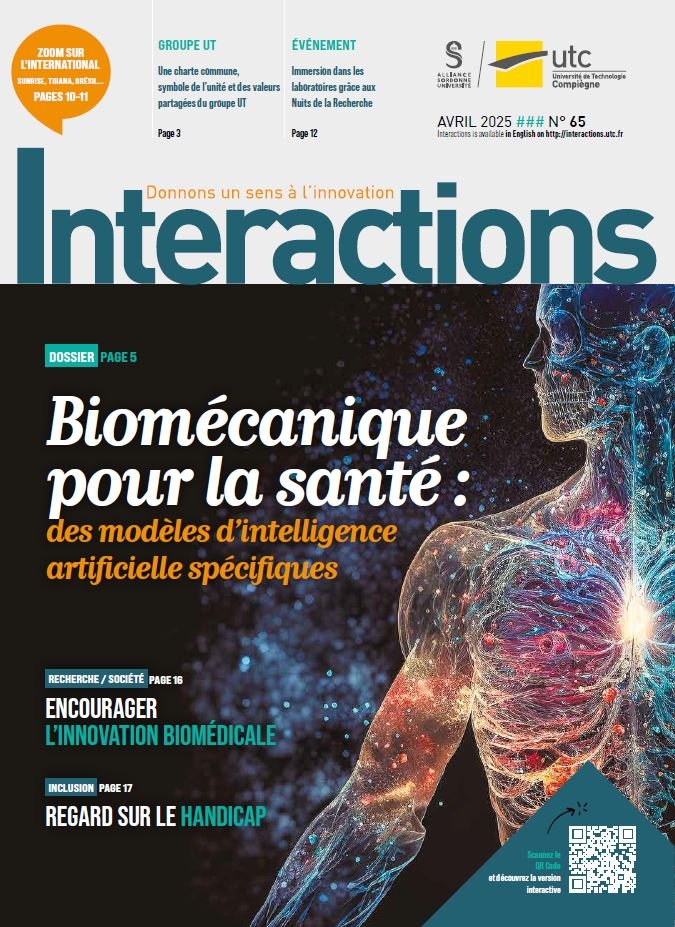Bing Bin, a bin that sorts your wastes

Maybe we shall see one installed next to each coffee-blender. Ah… and what is this ‘Bing Bin’ that recognizes your wastes and sorts them accordingly? It is a futurist, ecological project that won the French edition of this year’s James Dyson Award (Sept.2018)
In the beginning, there was this CC entitled, “Initiation for the creation and management of innovative enterprises”, followed by Tyngiun Du and Saad Lachhab, very keen on sustainable development questions. These two UTC students started out on an ambitious project: to revolutionize waste management by sorting and compressing them from the moment they are discarded and dropped in a bin. In September 2017, they won an ‘innovative project’ competition organized by the regional department DIDT (Innovation and Territorial Development), which enabled them to benefit from accompaniment via the DPIE (entrepreneurial aids for innovative projects). “The DIDT has, at its disposal, a wide-ranging set of aids to help student-entrepreneurs”, explains Virginie Lamarche, herself an engineer in charge of this incentive entrepreneurial arrangement. “The aid can take the form of finance, co-working space assignments, access to the Fab’Lab, contacts and liaison with UTC laboratories … The students selected are accompanied from the early project stages up to and including point of sale introduction of their product(s)!”
In 2018 another student, Yuchen Qiu, joined the team who were readying themselves for the James Dyson Award competition, supported in this by the IDI specialty staff (industrial design engineering). “In accompanying our students through this competition, we help them in fact to prepare themselves better for a future profession, given that calls to tender and competitions are part and parcel of any design engineer’s work”, explains Emmanuel Corbasson, head of IDI. And as has been the case since 2013, this Bing Bin project was ranked finalist, “because our students”, underscores Emmanuel, “benefit from a specific accompaniment and because we teach them how to address user-cantered problems”. So what will happen now? Tyngiun has graduated from UTC and has returned to China. But she definitely does not wish to abandon the Bing Bin project. Following Saad’s departure too, Julie Schwarz joined the team to pursue the development of Bing Bin, again with support from the DIDT. This is a great opportunity for her. “Since I joined the project, I have been in charge of product design aspects, with liaison work among colleagues here and all our external PR “comm” work … a rea challenge for me!:
The fact that Tyngiun is now back in China is not seen as problematic for her: « On the contrary, it turns out to be an advantage! The R&D aspects and market-studies are carried out in France, so my role will be to contact Chinese suppliers to make sure that the parts we buy here are of suitable quality. Working between France and China is never straightforward, but we are convinced that it will prove to be an advantage in the long term!”
How does the Bing Bin it work?
- 1 The user discards waste item(s)
- 2 The Bing Bin photographs and identifies items: can, plastic bottle, goblet, etc. (organic wastes are not taken in to account)
- 3 Weighty sensors detect if any liquids remain (if so, the user must empty them into a special recipient).
- 4 The waste items are then compressed and dispatched to a compartment specific to the category of waste.
Entrepreneurship at UTC
- • The competition for innovative projects (launched in 2010): 8 start-ups created
- • 8 start-ups accompanied outwith then competition
- • The European Innovation Academy: 4 projects
- ranked in the “top ten” over the past three year period the “Elite” entrepreneurship programme: 10–15 students each year, 7 start-ups created




